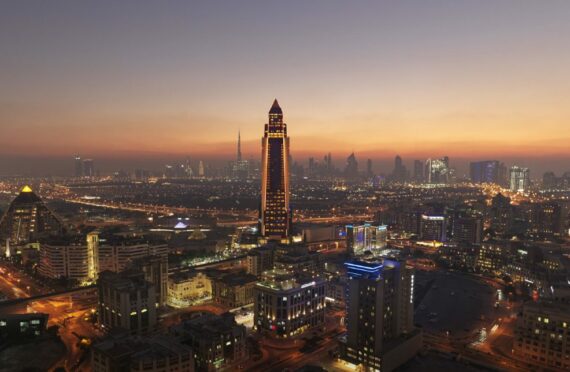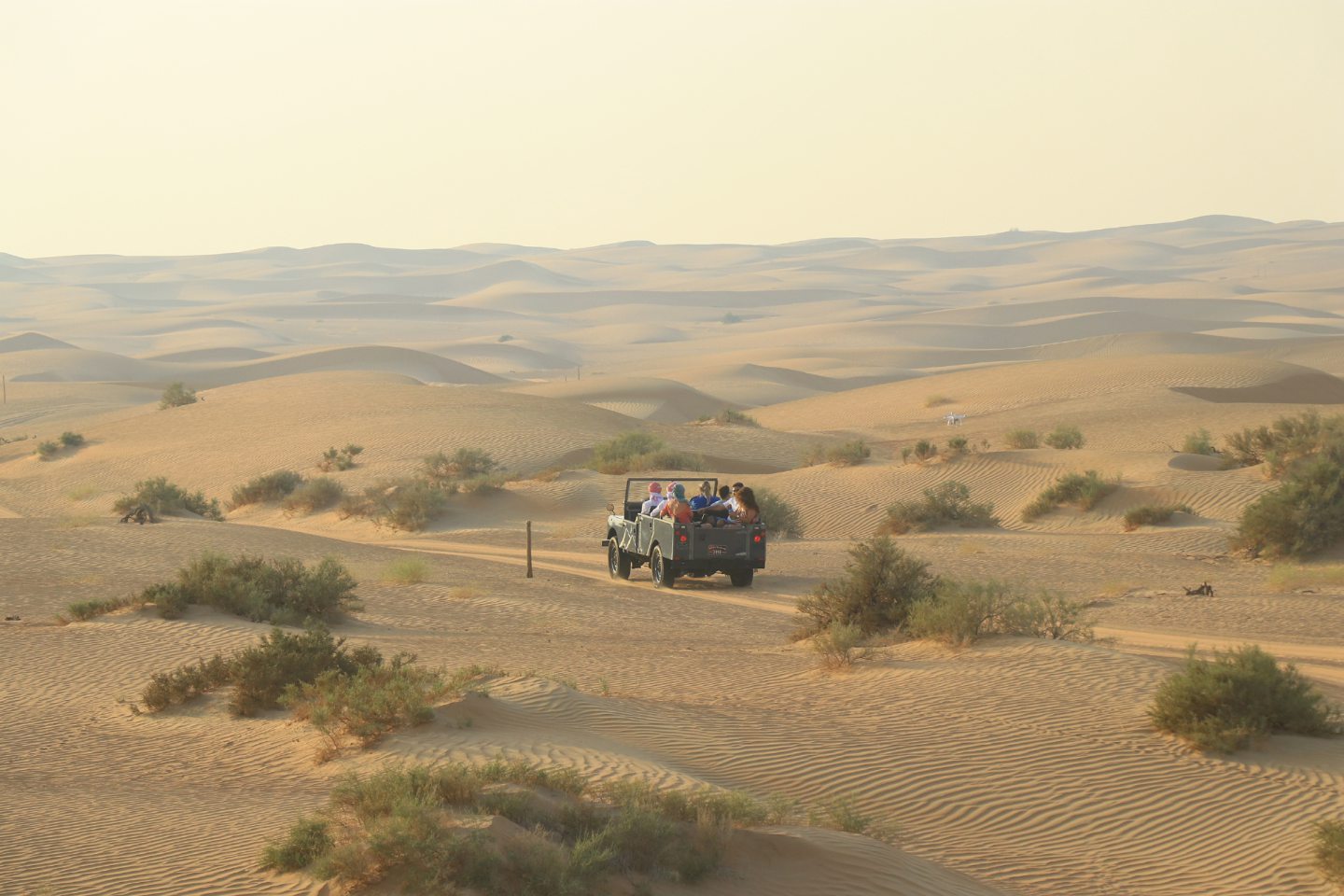
Rooms at Sofitel The Obelisk (sofitel-dubai-theobelisk.com) start from £160 per night with breakfast.
Dubai-London Heathrow with Emirates (emirates.com) cost from £399 return and £459 return from Manchester.
Platinum Heritage (platinum-heritage.com) – Heritage Desert Safari from £115 for adults and £95 for children.
visitdubai.com
In a glass cabinet, wardrobe rails are crowded by of a jumble of dresses, shirts and jackets. Opposite, a fridge overflows with cartons of milk, platters of meat and stacks of ready meals.
In a city famous for excess, this could be an average Emirati household. Dubai is, after all, the land of no limits, where towering skyscrapers reach for the stars.
As part of an immersive installation themed to sustainability, however, these dioramas of domesticity are alarmingly dysfunctional.
“The idea is to stimulate conversation about the number of day-to-day products we consume,” says Mona Al Ali, who helped co-ordinate the artworks, as we study a collage of disposable plastic moustaches, the sort typically found inside a Christmas cracker. “It forces us to ask questions about how our lifestyles impact nature.”
Sustainability is one of the key themes for EXPO 2020, postponed due to the pandemic but scheduled to take place in Dubai from October 1, 2021, to March 31, 2022. And the event is epic in scale and ambition.
With 40% of the UAE vaccinated and workers giving the final touches to pavilions representing 192 nations, it’s a realistic vision.
Although environmental themes have been adopted by many participating countries, a standalone pavilion, Terra, is dedicated to the topic. Claiming to be the UAE’s most sustainable building to date, it’s on course to achieve net-zero status with the help of water condensing and solar gathering trees that rotate to follow the sun.
Visitors have a choice of two journeys: one dives beneath the ocean, while the other tunnels below a forest. Both follow a fairy-tale narrative of an idyllic world threatened by the villain of human consumption, tempered by a happy ending of hope.
“Everyone talks about sustainability in this day and age, but we wanted to create an experience that gets to people’s hearts, and hopefully get them to act differently,” says EXPO senior manager Mona, as we stand beneath a mobile of 1,851 iridescent butterflies – a number referring to the year the first world expo was held.
Looking beyond the bright, shiny buildings of Dubai, there’s a celebration of tradition and culture – in fashion, design and food. British expat Russell Impiazzi, executive chef at the new Sofitel Dubai The Obelisk, has passionately embraced typical Middle Eastern cuisine.
On an early morning trip to the Dubai Waterfront Market, he enthuses about the variety of seafood available locally. Pink-eared emperor fish, milkfish and hammour all glisten on beds of ice in the market. “This is the birthplace of nose-to-tail eating,” he laughs, as we walk past a butcher’s counter selling a bucket of lamb’s testicles.
Russell is on a mission to source ingredients locally and he’s planning to feature local fish on the hotel’s menus, and many of the vegetables he buys are from pioneering Emirati farms, who have developed techniques to grow organic produce in the desert.
The dynamic kitchen conservationist is also tackling food waste – a universal problem in the hospitality industry. During the pandemic, short shelf-life ingredients were transformed into 1,000 meals for the UAE Food Bank.
Plans to pursue a “full cycle” philosophy by creating composts and recycling waste on site fit with the hotel’s green philosophy.
Although the grand façade of Abu Simbel is outrageously ostentatious, the hotel’s art deco interior is stylish. But no matter how big or beautiful its buildings might be, Dubai will always be a desert.
On a trip with Platinum Heritage to the Dubai Desert Conservation Reserve, I cruise past snow-white oryx, and I learn about the variety of scrubby plants surviving in the sands.
Driving in vintage open-air Land Rovers, the company has a policy of no dune bashing, claiming the activity is harmful to flora. In a bid to preserve the environment, they also organise regular desert clean-ups.
Reclining on a bed of embroidered floor cushions as the sun is setting, I settle down for a falconry display. Whooshing above my head, an avian missile reaches a speed of 100km per hour. Even more impressive is the fact she holds a UAE passport and is permitted to travel in the cabin of planes – although only in business or first class.
But in a nation adept at mastering flights of fancy, anything is possible.

Enjoy the convenience of having The Sunday Post delivered as a digital ePaper straight to your smartphone, tablet or computer.
Subscribe for only £5.49 a month and enjoy all the benefits of the printed paper as a digital replica.
Subscribe © Press Association Images
© Press Association Images